Buy Addiction, Trauma, and Adverse Childhood Experiences (ACEs)-The Neuroscience behind Developmental-Attachment Trauma and Adverse Childhood Experiences – Linda Curran Course at GBesy. We actively participate in Groupbuys and are committed to sharing knowledge with a wider audience. Rest assured, the quality of our courses matches that of the original sale page. If you prefer, you can also buy directly from the sale page at the full price (the SALEPAGE link is directly provided in the post).
Salepage link: At HERE. Archive:
$199.99 $60 – Addiction, Trauma, and Adverse Childhood Experiences (ACEs)-The Neuroscience behind Developmental-Attachment Trauma and Adverse Childhood Experiences – Linda Curran
Clients are desperately trying to make sense of their symptoms of depression, free-floating anxiety, addictive behaviors, dysregulated emotions, physiological arousal, and seemingly unrelated medical issues. They look to you to create an understanding, provide an accurate diagnosis, and layout an effective treatment approach; however, you find that you can’t without understanding and addressing their “why”. The science is clear and overwhelming about the lasting effects of adverse childhood experiences, developmental trauma, and attachment wounds.
In this video, you will learn key insights regarding the neuroscience of addiction from the Adverse Childhood Experiences (ACE) Study, one of the largest investigations of childhood abuse and neglect, and the impact on later-life health and well-being. You will understand the important assessment and treatment implications from neuroscience that show us addiction is experience dependent, not substance dependent.
You will learn treatment recommendations from the leading experts in trauma and addictions treatment including:
- Bessel A van der Kolk, MD, New York Times best-selling author and the world’s leading expert on psychological trauma
- Vincent Felitti, MD, co-principal investigator of the ACE Study
- Louis John Cozolino, PhD
- Lance Dodes, MD
- Lisa Ferentz, LCSW-C, DAPA
- Jim Hopper, PhD
- Gabor Maté, MD
- Lane Pederson, PsyD, LP, DBTC
- Mary Lou Schack, PhD
Fusing research and theory about attachment and complex developmental trauma, these experts provide invaluable insight that informs our therapy, including:
- The therapeutic alliance, along with all its inherent challenges with boundaries and clinical enactments
- The use of contemplative practices for changing the brain
- Teaching skills for self-regulation
- Evidence-based modalities for both stabilization and processing traumatic material
- Present the findings of The Adverse Childhood Experiences Study (ACEs) and ascertain its clinical implications.
- Articulate the impact ACEs have on an adult client’s morbidity and mortality and explain how this may inform treatment recommendations.
- Implement 10 additional trauma-informed questions in the general medical questionnaire, and use the information gathered to inform the clinician’s choice of treatment interventions.
- Apply treatment components of Dialectical Behavior Therapy to improve clinical outcomes among clients with mental illness, addiction, and dual diagnosis.
- Analyze the efficacy of 12-step programs in addiction treatment.
- Apply the findings of the ACEs study to your clinical treatment planning for the management of a client’s addictive, self-harm and violent behaviors.
- The Origins of the ACE Study
- 10 Categories Studied
- Categories of Abuse
- Physical
- Emotional
- Contact Sexual
- Categories of Neglect
- Emotional
- Physical
- Categories of Household Dysfunction
- Household Substance Abuse
- Mother Treated Violently
- Household Mental Illness
- Incarcerated Household Member
- Parental Separation or Divorce
- Categories of Abuse
- Demographics
- Impact on
- Emotional State
- Mental Illness
- Social Malfunction
- Occupational Performance
- Biomedical Health
- Disease
- Premature Death
- Damage Occurs
- Various “Maladaptive” Coping Mechanisms
- Evidence Against the Disease Model of Addiction
- People Couldn’t Stop Using
- Spontaneous Remission
- Shift to Behavioral Addictions
- DA Response is Immediate
- Different Causes of Relapse
- Evidence Against the Disease Model of Addiction
- Chronic Unrelieved Stress on the Brain
- Disrupted Brain Development
- Epinephrine
- Norepinephrine
- Cortiso
- Dopamine
- Serotonin
- Disrupted Brain Development
- Epigenetics
- Borderline Personality Disorder
- Re-victimization
- Complex PTSD
- Various “Maladaptive” Coping Mechanisms
- Implementing ACE Study Information
- The Addition of 10 Trauma-Oriented Questions
- Treatment
- Neuroscience of Trauma
- Addiction Treatment Trauma
- 12 Step Program vs. Treatment
- Rehab
- Recommendations
- Therapeutic Relationship Complex Trauma
- Therapeutic Alliance
- Clinical Enactments
- Mandated Therapy for Therapists
- Simple Interventions
- The Body and the Brain; Embodiment Circuitry
- 5 Functions of DBT
- Increasing Client Motivation
- Increasing Client Capability
- Generalize Skills
- Increasing Therapist Motivation
- Structure
- DBT Skills
- Mindfulness
- Distress Tolerance
- Emotion Regulation
- Interpersonal Effectiveness
- DBT Interventions
- More on the Phase Model of Treatment
- Simple vs. Complex PTSD
- Trauma Processing Modalities
- Evidence-Based Practice
Please Note: PESI is not affiliated or associated with Marsha M. Linehan, PhD, ABPP, or her organizations.
$199.99 $60 – Addiction, Trauma, and Adverse Childhood Experiences (ACEs)-The Neuroscience behind Developmental-Attachment Trauma and Adverse Childhood Experiences – Linda Curran
Buy the Addiction, Trauma, and Adverse Childhood Experiences (ACEs)-The Neuroscience behind Developmental-Attachment Trauma and Adverse Childhood Experiences – Linda Curran course at the best price at GBesy.. After your purchase, you will get access to the downloads page. You can download all the files associated in your order at here and we will also send a download notification email via your mail.
Unlock your full potential with Addiction, Trauma, and Adverse Childhood Experiences (ACEs)-The Neuroscience behind Developmental-Attachment Trauma and Adverse Childhood Experiences – Linda Curran courses. our courses are designed to help you excel.
Why wait? Take the first step towards greatness by purchasing Addiction, Trauma, and Adverse Childhood Experiences (ACEs)-The Neuroscience behind Developmental-Attachment Trauma and Adverse Childhood Experiences – Linda Curran courses today. We offer a seamless and secure purchasing experience, ensuring your peace of mind. With our trusted payment gateways, Stripe and PayPal, you can confidently complete your transaction knowing that your financial information is protected.
Stripe, known for its robust security measures, provides a safe and reliable payment process. With its encrypted technology, your sensitive data remains confidential throughout the transaction. Rest assured that your purchase is protected.
PayPal, a globally recognized payment platform, offers an additional layer of security. With its buyer protection program, you can feel confident in your purchase. PayPal ensures that your financial details are safeguarded, allowing you to focus on your learning journey.
Is it secure? to Use of?
- Your identity is completely confidential. We do not share your information with anyone. So it is absolutely safe to buy the Addiction, Trauma, and Adverse Childhood Experiences (ACEs)-The Neuroscience behind Developmental-Attachment Trauma and Adverse Childhood Experiences – Linda Curran course.
- 100% Safe Checkout Privateness coverage
- Communication and encryption of sensitive knowledge
- All card numbers are encrypted using AES at relaxation-256 and transmitting card numbers runs in a separate internet hosting atmosphere, and doesn’t share or save any data.
How can this course be delivered?
- After your successful payment this “Addiction, Trauma, and Adverse Childhood Experiences (ACEs)-The Neuroscience behind Developmental-Attachment Trauma and Adverse Childhood Experiences – Linda Curran course”, Most of the products will come to you immediately. But for some products were posted for offer. Please wait for our response, it might take a few hours due to the time zone difference.
- If this happens, please wait. The technical department will process the link shortly after. You will receive notifications directly by e-mail. We appreciate your wait.
What Shipping Methods Are Available?
- You will receive a download link in the invoice or YOUR ACCOUNT.
- The course link always exists. use your account to login and download the Addiction, Trauma, and Adverse Childhood Experiences (ACEs)-The Neuroscience behind Developmental-Attachment Trauma and Adverse Childhood Experiences – Linda Curran course whenever you need.
- You only need to visit a single link, and you can get all the Addiction, Trauma, and Adverse Childhood Experiences (ACEs)-The Neuroscience behind Developmental-Attachment Trauma and Adverse Childhood Experiences – Linda Curran course content at once.
- You can do your learning online. You can be downloaded for better results and can study anywhere on any device. Make sure your system does not sleep during the download.
How Do I Track Order?
- We always notice the status of your order immediately after your payment. After 7 days if there is no download link, the system will automatically complete your money.
- We love to hear from you. Please don’t hesitate to email us with any comments, questions and suggestions.
![GBesy [GB] GBesy [GB]](https://www.gbesy.com/wp-content/uploads/2023/05/gbesy-Logo-full-100.png)

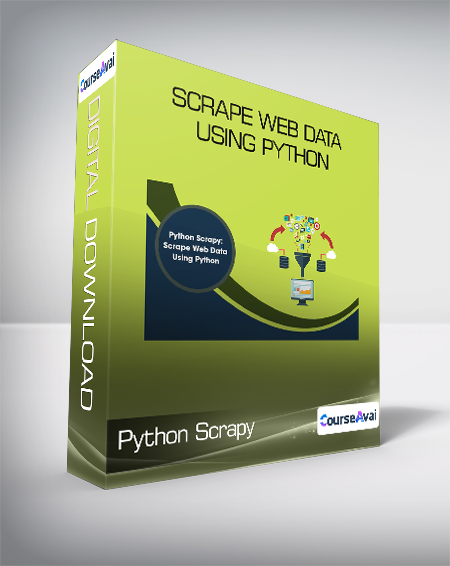

 Purchase this course you will earn
Purchase this course you will earn 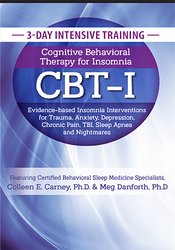
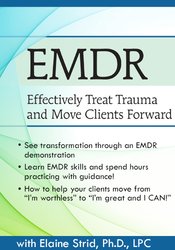
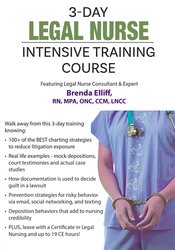
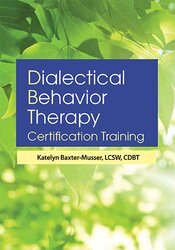
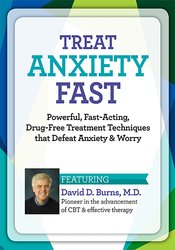
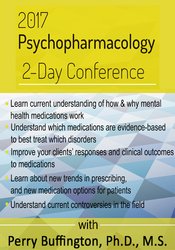
Reviews
There are no reviews yet.